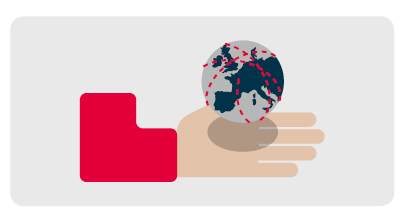Having drawn from the expertise of Atradius Collections' local offices, the International Debt Collections Handbook explains the different regulations and procedures for debt collections in Indonesia.
Amicable collections
General information

Payments in Indonesia usually take 30 days on average; however, delays may reach up to 20 days. The payment behaviour of Indonesian companies in recent years has improved and would be somewhere between acceptable and good. During the amicable phase, it is common practice to appoint a lawyer to serve a warning letter to the debtor. The warning letter provides a stern message to the debtor that the creditor is vigilant about the outstanding debt. We can only serve the debtor with a warning letter if we already possess strong preliminary evidence, such as the sale purchase agreement, invoices, packing or shipping list.
Interest
Indonesian law prescribes no standard payment terms, but the Civil Code regulates late payment interest, which has to be paid by the defaulting party at the request of the non-defaulting party before a court. Two sorts of interest would apply. A conventional interest rate (‘bunga konvensional’) may be agreed by the parties through a contract and apply in case of late payment or if a breach of other obligations occurred. However, if no contractual agreement exists, a 6% per annum legal interest rate (‘bunga moratoir’) is set by law.
Debt collection costs
To date, there is no law or regulation in Indonesia that regulates collection costs in particular or debt collection activities in general. However, within Indonesian law, there is a split between material and immaterial losses. Material losses is direct losses caused by the debt, i.e. the principal debt and/or the cost of shipping. Immaterial losses are indirect losses resulting from the debt. Legal costs will be included as an indirect loss.
The Debt Collections Handbook presents a snapshot of Indonesia's economic situation and covers the following topics:
- Legal procedures & required documents
- Lawsuit
- Insolvency proceedings
- Expected time frame and outcome
To read more about steps and procedures undertaken in debt collections in Indonesia and other countries: